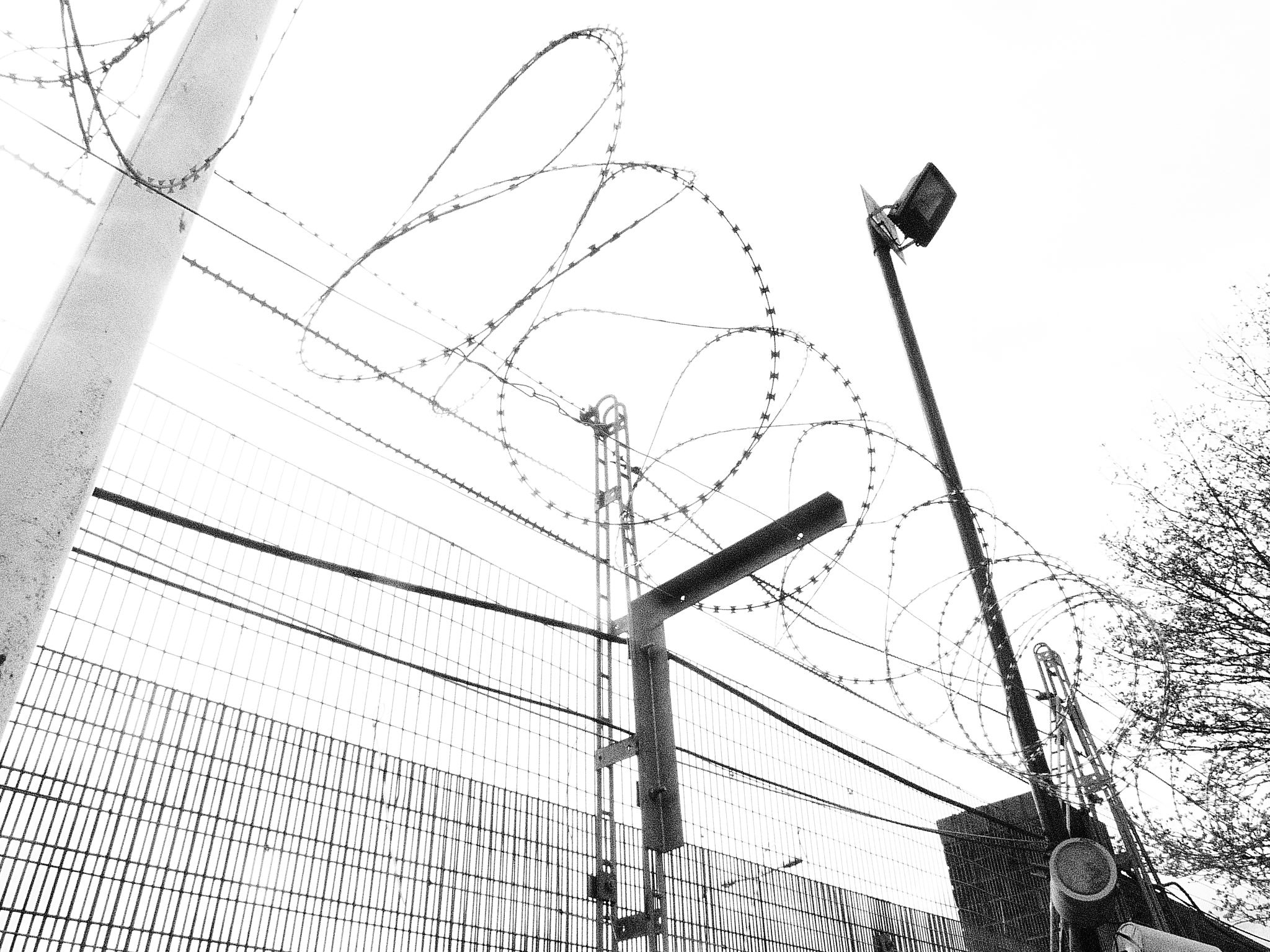[contextly_auto_sidebar id=”Ty6Q1ZZ0hjWWeyzcfsG5BKqcJHsPOwcC”]
Newly released figures have sparked accusations that the Home Office is using detention as an ‘administrative convenience’ when processing migrants for deportation, according to yesterday’s report in the Independent. The case for having a time limit on how long people can be held in immigration detention gains another boost following release of the data, obtained following a request under the Freedom of Information Act. (Barbed wire pic, from Flickr under creative comms licence, by Terry Freeman)
The figures reveal that, of the people detained without trial by the Home Office, 20 were effectively imprisoned for two years or more, and 90 for one year or more. One detainee has been detained for almost five years.
This information comes not long after James Brokenshire, in response to questions by Liberal Democrat MP Sarah Teather, revealed that the Home Office have paid £14.3 million in damages for unlawful detention in the last three years. Many of the decisions by the Home Office to continue detention are challenged and a significant number of those detained are subsequently released, often with indefinite leave to remain in the UK.
The damages figures, which do not include the actual cost of detaining these people for many years in detention centres whilst they wait for a decision, emphasises that the actions of the Home Office are not only resulting in the deprivation of liberty of many innocent and often highly vulnerable individuals, but are having a significant financial cost.
Despite criticism of immigration detention, including recently the Detained Fast Track system following successful litigation by Detention Action, the Home Office do not appear to have made any real changes to improve the system. There is hope that the cross-party inquiry into immigration detention will shed further light on the inadequacies of the current system, lead to reform and end the detention of vulnerable people. The inquiry is chaired by Sarah Teather and the website for the inquiry does not currently state when the report is due, although it contains information from the most recent evidence session.
It is important to emphasise that the recently disclosed figures exclude those detained under immigration and criminal powers. This means that they have not been convicted of any criminal offence and thus are unlikely to pose a risk of harm to the public.
The Home Office response to the figures, as cited in the Independent article is that:
“Those with no right to be in the UK should return home. Detention is used as a last resort when an individual will not leave voluntarily or when there is a risk they will abscond. When we do detain people it is for the minimum time possible. All detention is reviewed on a regular basis to ensure it only lasts as long as it continues to be necessary.”
The Home Office answer is revealing in itself in that it fails to address the fact that time and again detention is shown as not being used as a last resort and not for the minimum time possible and that detention reviews are inadequate. The level of damages paid out in the last three years is evidence of this.
In addition to the cost to the taxpayer associated with such extended periods of detention, the effects on the detainees themselves are often severe, with the mental health of migrants highly likely to deteriorate while in immigration detention centres.
Camilla Graham Wood, a solicitor specialising in unlawful detention claims at Birnberg Peirce & Partners, said:
‘The detention of victims of torture, victims of trafficking and those with serious mental health problems for long periods of time results in devastating impacts on these individuals and is completely unacceptable. The processes which are meant to operate to protect them are not working. As the Mental Health in Immigration Detention Action Group have pointed out in a recent report, the current situation is untenable.’
Deprivation of liberty is most commonly associated with criminals, and even those convicted of a crime who are awaiting sentence are theoretically entitled to bail. Depriving migrants of their liberty, many of whom are completely innocent of any wrongdoing whatsoever, therefore remains contentious. Britain remains the only EU country not to impose a limit on how long a person can be detained while awaiting deportation.







